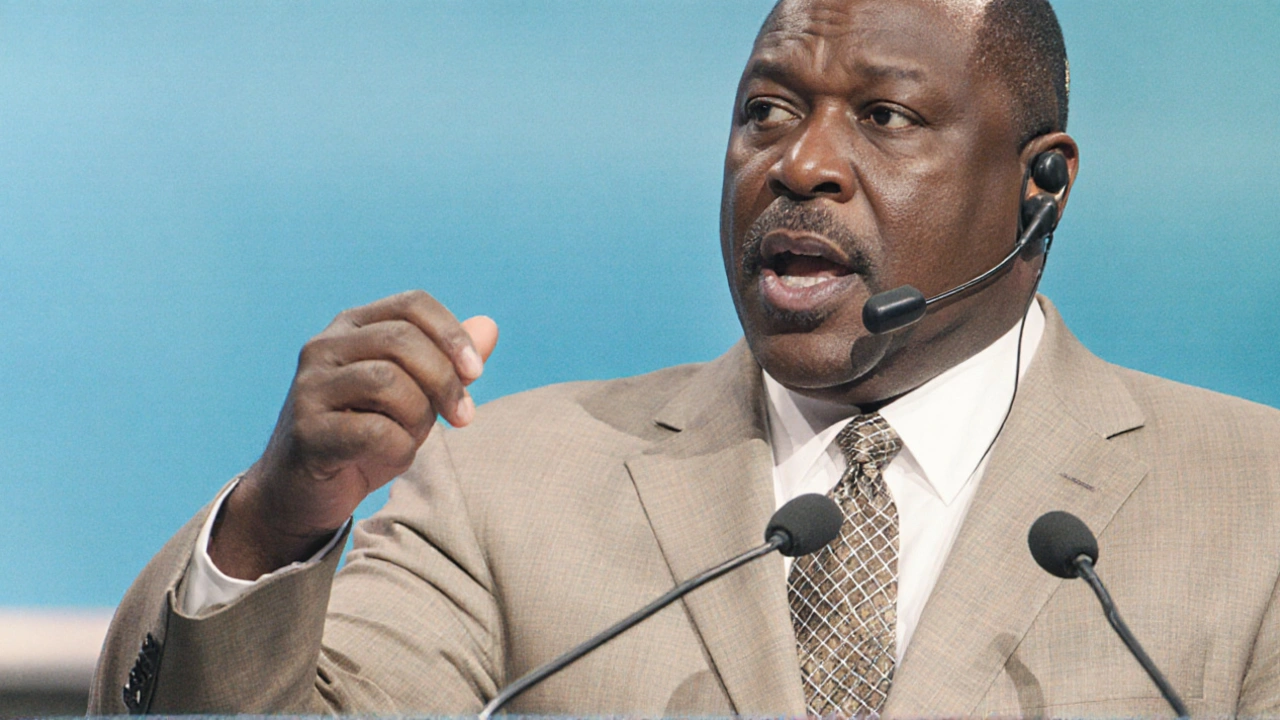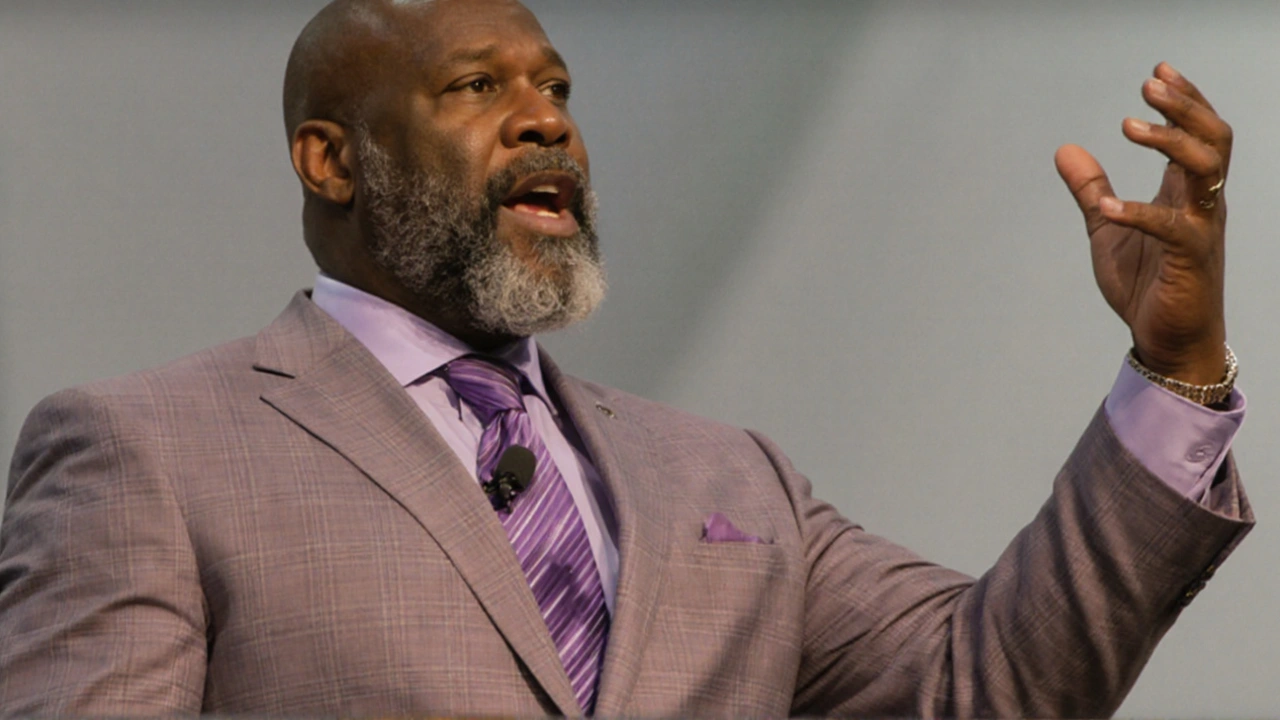When the world was still reeling from the images of George Floyd’s death, a new cultural flashpoint burst onto the evangelical scene. Pastor Voddie Baucham, a best‑selling author and speaker, started warning his audiences that Critical Race Theory was not just another academic concept—it was a “looming catastrophe” for the church.
The Four Tenets Baucham Flags
In his book Fault Lines, Baucham lays out what he sees as the core ideas driving this movement. First, he says CRT treats racism as a permanent, all‑pervasive condition—something we breathe like air. Second, the theory leans on “interest convergence,” the claim that white people will only act against racism when it benefits them personally.
Third, Baucham argues the ideology rejects any form of “objective” reasoning. It dismisses the scientific method, logical debate, and even the idea that facts can stand apart from personal experience. Finally, the fourth tenet places truth inside the perspective of minority groups that subscribe to CRT, rather than in an external reality that can be examined by anyone.
Put together, these points paint a picture of a worldview that says America is inherently racist, and that any attempt to fix it must start by reshaping how we see the world—not by looking at data or Scripture.

Why He Says It Threatens the Gospel
Baucham’s biggest alarm bell is what he calls the erosion of Scripture’s sufficiency. He says leaders who embrace CRT are not simply adding a new lens to biblical truth; they are letting outside philosophies rewrite what the Bible says about race and justice. In his view, that’s classic eisegesis—reading one’s own ideas into the text instead of letting the text speak for itself.
He backs up his claim with a handful of studies that run counter to the usual CRT narrative. Harvard economist Roland Fryer’s research, for instance, found that when you control for crime rates and other factors, racial disparities in police shootings disappear. A report from the National Academy of Sciences reached a similar conclusion. Baucham says these findings get buried because they don’t fit the “systemic racism” storyline.
The pastor also points to the rapid adoption of social‑justice language after 2020. Within weeks, many churches were chanting “Black lives matter” and labeling racial reconciliation a gospel issue—often without digging into the philosophical roots of those slogans. To Baucham, that rush creates the “fault lines” that can split congregations, as some members double‑down on CRT while others push back.
Beyond the church doors, Baucham warns that the broader “woke” movement, which he lumps together with antiracism, builds a binary world: the powerful versus the powerless, the oppressor versus the oppressed. He says this worldview clashes with the biblical teaching that every person is made in the image of God, regardless of status.
While his tone is urgent, Baucham does leave room for dialogue. He invites evangelical leaders to return to a “Christ‑centered” approach to race—one that tackles injustice without discarding the authority of Scripture or the tools of rational inquiry. His message is clear: if the church lets CRT dictate its theology, it risks losing the very foundation that has held it together for centuries.


Man, I’ve been reading Baucham’s book and honestly? It’s like he’s trying to warn us about a ghost. CRT isn’t some evil cult-it’s just a tool to see how power works in society. The church has been silent on systemic stuff for too long, and now people are waking up. If we’re scared of talking about race because it ‘clashes with Scripture,’ then maybe we’ve been reading Scripture wrong all along.
God didn’t give us a book to avoid hard truths-he gave us a book to love our neighbor. And if your neighbor is being crushed by a system, ignoring it isn’t holiness. It’s cowardice.
I’m not saying throw out the Bible. I’m saying let the Bible meet us where we are. Even in India, caste is a living CRT. We don’t need Western labels to see oppression-we just need the courage to name it.
Stop fearing the word ‘racism.’ Start fearing silence.
Wow. So now the church is supposed to become a woke protest group? Next they’ll be demanding pronouns in the Lord’s Prayer.
THIS. Finally someone with guts. 🙌 CRT is Marxist poison wrapped in rainbow glitter. The Bible says ALL are sinners, not ‘oppressors’ and ‘victims.’ You don’t fix sin with politics-you fix it with the cross.
When your pastor says ‘Black Lives Matter’ like it’s a gospel doctrine, he’s not preaching Christ-he’s preaching cancel culture. And we all know where that leads. 🇮🇳 #BibleNotBiden
fr tho why is everyone acting like CRT is some new devil. its just a way to look at stuff. u dont have to believe it to see it. also why u so scared of facts? 🤔
Let me say this gently: the church has always been shaped by culture. Augustine didn’t write in a vacuum. Luther didn’t ignore the politics of his day. The question isn’t ‘should we engage with society?’ but ‘how do we do it faithfully?’
Cracking open CRT isn’t rejecting Scripture-it’s asking: ‘What does Scripture say about power, justice, and dignity?’ If we’re afraid to ask that, we’ve turned the Gospel into a safety blanket.
And yes, Fryer’s data matters. But data doesn’t capture the fear a Black mother feels when her son walks out the door. That’s not CRT-that’s human experience. And God sees it.
We don’t have to choose between Scripture and justice. We have to choose between love and fear.
It is imperative that the ecclesiastical institution maintain its doctrinal purity above all sociopolitical trends. The hermeneutical integrity of Scripture must not be compromised by ideological frameworks that originate in secular humanism. To conflate systemic analysis with theological authority constitutes a fundamental epistemological error. The Word of God is sufficient. End of discussion.
Oh please. CRT is just woke propaganda for people who don’t know history. Did you know in India we had caste oppression for 3000 years? But we didn’t need some American academic theory to fix it. We had our own wisdom. Now you want to import a foreign ideology to tell us how to love each other? Absurd.
Let’s be real. The church has spent decades avoiding race because it’s messy. CRT isn’t the enemy. Silence is. If we’re going to preach ‘justice’ in the same breath as ‘grace,’ we need to know what justice actually looks like. Not the kind that looks like a protest sign. The kind that looks like a table where everyone is seated equally.
And no, you don’t have to agree with every CRT scholar to see that the system has holes. We can hold both truth and tension. That’s not weakness. That’s maturity.
Baucham’s got fire in his belly, I’ll give him that. But man, he’s screaming at a hurricane with a flip-flop. CRT isn’t the storm-it’s the rain that’s been falling for centuries and now people are finally holding umbrellas.
Look, I grew up in a village where upper caste guys would spit on our side of the road. No one taught me CRT. I just knew the air tasted different when I walked past them.
Maybe the church doesn’t need a new theory. Maybe it just needs to listen. Not to fix. Not to debate. Just to sit with the pain.
And if that feels like a threat? Good. Maybe the Gospel’s been too comfy.
The real issue isn’t CRT versus Scripture. It’s epistemology. If truth is only accessible through lived experience, then reason becomes a tool of oppression. But if truth is objective, then experience must be interpreted through a higher standard-Scripture. The tension isn’t between race and theology. It’s between subjectivity and revelation.
Christ didn’t say, ‘I am the way, the truth, and the feeling.’ He said, ‘I am the truth.’ That’s the anchor. Not the narrative. Not the emotion. Not the trend. The truth.
People are scared because they don’t understand. CRT is not a belief system. It’s a framework. Like using a microscope. You don’t have to like the microscope to use it to see germs.
Jesus healed the sick, fed the hungry, and challenged the powerful. That’s not ‘woke.’ That’s the Gospel. If we’re afraid to talk about power, we’re afraid to talk about Jesus.
So the church is now a think tank for white guilt? 😂 I mean, I get it. Nothing says ‘I’m spiritually mature’ like yelling at your pastor for not using the right hashtags. But hey, if your Bible is missing the word ‘systemic,’ maybe you’re reading the wrong book.
bro i just want to know why we gotta turn everything into a war. can’t we just love each other? like… i’m brown, my friend’s black, we both go to church. we don’t need a theory to know we’re all messed up and all loved by jesus. chill.
While the concerns raised by Pastor Baucham are valid, it is essential to distinguish between the academic discipline of Critical Race Theory and the popularized cultural discourse surrounding it. The church must remain anchored in Scripture, yet it must also engage with the world as it is-not as we wish it to be. Engagement does not imply assimilation. Discernment is required.
Actually, CRT was developed by legal scholars in the 1970s to analyze how law reinforces racial hierarchies. It’s not a conspiracy. It’s a methodology. And yes, it’s been misused. But so was the doctrine of predestination. That doesn’t mean we throw out the whole framework. We refine it. We test it. We hold it up to Scripture. Not because we fear it-but because we love truth.
God doesn’t care about your labels. He cares about your heart. If you’re loving your neighbor, you’re doing better than 90% of the church. Stop arguing about theories. Start serving people.
Here’s the real question: if CRT helps us see the blind spots in our theology, should we reject it-or let it sharpen our understanding? The church has always borrowed from culture: Greek philosophy, Roman law, even pagan festivals. We didn’t worship them-we redeemed them.
Maybe CRT isn’t the enemy. Maybe it’s the mirror we’ve been too afraid to look into. And if the mirror shows us sin? Good. That’s what grace is for.
Scripture is sufficient. CRT is not. End.